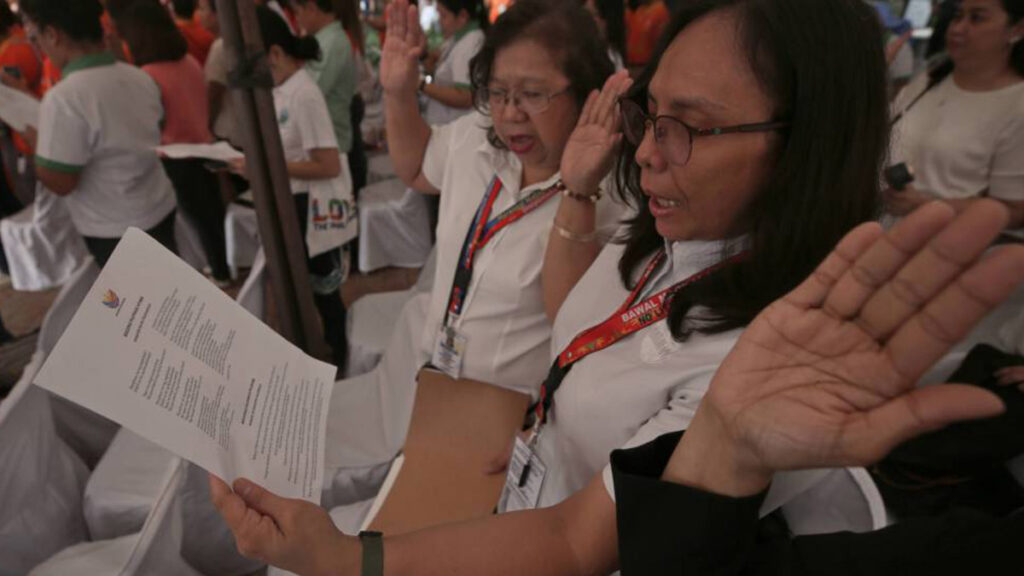
| File photo
MANILA, Philippines — A bill seeking to lower the optional retirement age for government workers from 60 to 56 was approved by the House of Representatives, voting viva voce, on second reading on Wednesday.
House Bill No. 206 was principally authored by Makabayan bloc lawmakers — Alliance of Concerned Teachers Rep. France Castro, Gabriela Rep. Arlene Brosas, and Kabataan Rep. Raoul Manuel. It was consolidated with 12 other similar bills.
If enacted into law, it will amend the provision in the Government Service Insurance Act of 1997 that sets requirements on who can be eligible for optional early retirement.
Other preconditions, like a government worker needing to render 15 years of service first and not receiving a monthly pension due to disability, have been retained.
The pronoun “he” in the provisions was also removed to make the bill gender-neutral.
Strenuous work
In her sponsorship speech, Castro said that the bill had several humanitarian considerations for older people who could not do strenuous work in their late 50s.
“Behind this proposal are many legal, rational, and humanitarian considerations, like the 1991 United Nations Principles for Older Persons which state that ‘Older persons should be able to participate in determining when and at what pace withdrawal from the labor force takes place’,” Castro said in Filipino.
“In accordance with this, we in the Committee agree that government workers who have served for 15 years, and have reached 56 years old can be given the freedom to choose optional retirement, with old-age pension benefits while they are living,” she added.
More benefits
Castro also stressed that the bill would provide more benefits for government workers who would like to retire at an earlier age — because while they can opt to retire earlier due to permanent disability, not all workers meet the criteria set by the Government Service Insurance System (GSIS).
Furthermore, the lawmaker said the benefits for workers who retire due to permanent disability are smaller.
“The current law is very harsh on our government workers. Yes, they may apply for retirement due to permanent disability, but many of them would not fit the conditions set by GSIS for this. And of course, this has a smaller benefit. What happens most of the time is that they resort to unpaid leaves for a long time,” she said.
“But if they leave earlier than 60, they do not have the income for the present, and they cannot expect any retirement pay in the future. If they were asked, they would not want to endure these prospects, and many of them have told us that they hope to enjoy retirement while they have the chance to enjoy it,” she added.
Previous bills
A similar bill was filed in 2019, in the 18th Congress, and it was approved on the third and final reading.
That bill was also approved in the 17th Congress. However, GSIS officials had constantly expressed concerns about lowering the age of optional retirement, as it would mean reducing contributions as more workers could retire earlier.
Also, it would result in GSIS paying benefits to government workers earlier than expected.